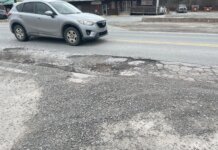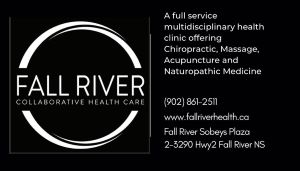
EAST HANTS/FALL RIVER: Here are some answers to questions the community submitted to us at The Laker to ask regarding COVID-19.
While we didn’t get a chance to ask these at the briefings as other questions were more relevant that we had they were still good, so we sent them on to the COVID media line in early May.
The answers are provided by communications staff at the Department of Health and Wellness and Dr. Robert Strang, the province’s chief medical officer of health.
Dr. Strang, why do you think there was such an age shift from previous waves to the data you showed that more young people are testing positive for COVID-19. Is there any rhyme or reason?
Answer: “The one thing we know for sure about any virus is that viruses change. They evolve, multiply and mutate in order to spread and survive. That is what we are seeing with these new variants which are proving to be highly transmissible – particularly among younger people.”
From the community: Dr. Strang, in light of the recent CDC recommendations that fully vaccinated persons may resume normal activities as per pre-pandemic, has the Government of Nova Scotia put any consideration into implementing these changes? Would proof of vaccination status be required or provided?
Answer: “While the vaccines are highly effective, they do not provide full immunity against COVID-19. It’s also important to remember that once you’re vaccinated, it takes two weeks for the vaccine to become effective. Testing remains a particularly important part of our fight against COVID-19.
“At this time, people who are vaccinated must continue to follow the public health measures, including masking and physical distancing. Discussions of proof of vaccine status or vaccine passports are happening at the federal level.”
Likely a question many want to hear an answer too, what do you know at this point about how effective the vaccine is in fighting all the new variants out there?
Answer: “Research into vaccine effectiveness continues worldwide. So far, what we are seeing is that the vaccines remain effective against the recent variants of concern.
“Some findings have noted that while the overall effectiveness against some variants was lower than in clinical trials, the effectiveness to protect someone against severe disease actually increased. These studies are ongoing as more and more people get vaccinated.”
From the community: What approach will we need to take based on the epidemiology and the easing of restrictions when they happen to ensure we don’t end up back in this similar position again either this summer or fall?
Answer: “Everything we do is based on the epidemiology and what we are seeing in terms of virus activity in Nova Scotia at the time.
“We need eligible Nova Scotians to get vaccinated and to continue to follow the public health protocols that are in place. While we hope to be able to ease the restrictions that are currently in place, it will take time and all of us working together to achieve that goal.”
From the community: Dr. Strang, what is the plan for getting seniors who are confined to their homes their vaccine shots. Nothing has been announced yet for them and sons and daughters of these seniors are becoming concerned?
Answer: “We know that not everyone will be able to access a vaccine in a community clinic due to mobility or medical conditions. We are currently immunizing patients in hospital.
“We are also working with the Nova Scotia Health Authority to accommodate people living at home with specialized medical situations. For Nova Scotians who are unable to access a community clinic. We are working on an in-home approach to vaccination. In the meantime, it is important the friends and family of anyone unable to get out to a community clinic for the vaccine, to get vaccinated themselves. Doing so offers increased safety for everyone in that home from the virus.
“We continue to encourage all eligible Nova Scotians to get vaccinated as soon as possible.”


































